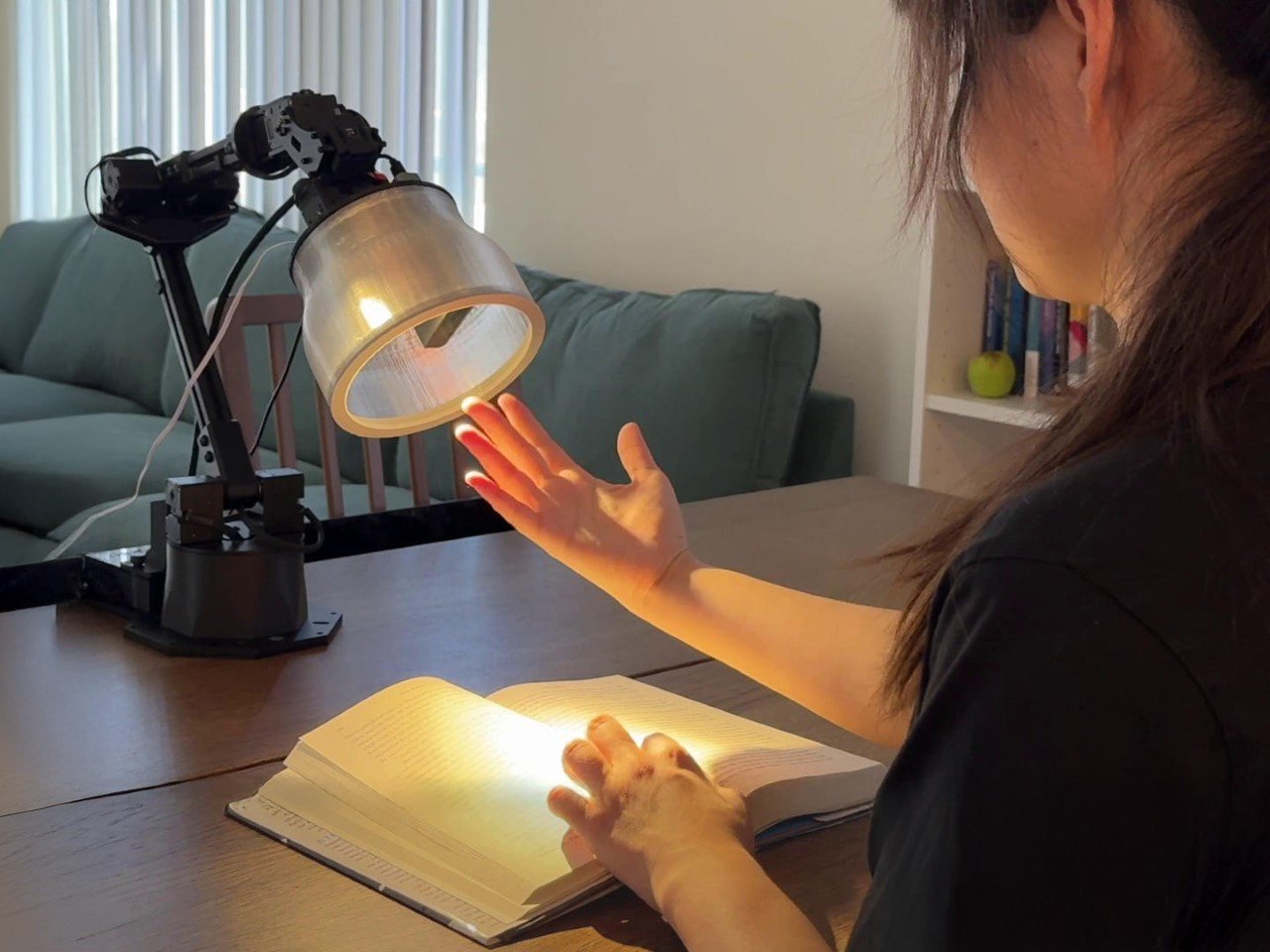Apple’s latest experiment in robotics feels like a love letter to Pixar’s Luxo Jr. The tiny, energetic desk lamp that hops onto the screen before every Pixar film has always been more than just a mascot—it’s a symbol of character-driven storytelling. Now, Apple’s researchers have taken that same playful, emotive energy and brought it into a real-world robotic lamp, designed not just to function, but to interact, express, and even entertain. Researchers at Apple presented a paper titled ‘ELEGNT’ (Expressive and Functional Movement Design for Non-Anthropomorphic Robot) along with a comprehensive video of the lamp in action.
There’s a poetic connection here. Steve Jobs, the man who shaped Apple’s design philosophy, was also the visionary who helped Pixar become an animation powerhouse. The DNA of both companies has always been about creating technology that feels approachable—whether through the friendly curves of an iPhone or the lifelike expressions of an animated toy. Apple’s robotic lamp embodies that same philosophy, proving that robots don’t need to be powerful to be meaningful. They just need to be relatable.
Designers: Apple Machine Learning Research Division
Developed by Apple’s Machine Learning Research division, this robotic lamp is more than an automated light source. It gestures, reacts, and even sulks when it’s left behind. A demonstration video shows it performing tasks in two modes: “Functional,” where it simply executes commands, and “Expressive,” where it adds personality to its movements. The difference is striking. Instead of cold efficiency, the expressive mode makes interactions feel natural—like the lamp is part of the room’s social fabric, not just an object within it.
In one scene, the lamp hears music and starts swaying, an irresistible display of curiosity. In another, it glances outside before describing the weather, as if pausing to check for itself. When it reminds a user to drink water, it nudges the glass forward—not as a command, but as a gentle encouragement. These small but thoughtful gestures tap into something deeply human: the way we naturally ascribe personality to objects that behave in familiar ways.
This is why anthropomorphism in robotics matters. People don’t just want machines that work—they want machines they can connect with. A robot that can convey joy, hesitation, or even mild disappointment is far more engaging than one that simply executes tasks. It’s a lesson we’ve seen play out in animated films for decades, and it’s one that robotics engineers are beginning to embrace. In a way it also helps shed the impression of robots being scary (Skynet, Terminator, Transformers, Ultron) by embracing more delicate, humane characteristics instead.
Apple’s research aligns with earlier reports from Mark Gurman suggesting the company is developing a home robot with an articulating arm and an iPad-like interface. Speculated to launch by 2026 or 2027, it could integrate with smart home systems and even act as a companion device. If Apple is serious about bringing robotics into consumer spaces, this expressive lamp could be a glimpse of what’s to come.
For now, this experiment serves as a reminder that technology doesn’t have to be rigid or clinical to be useful. The best machines aren’t just the ones that perform tasks efficiently—they’re the ones that make us feel something. And if a desk lamp can make you smile just by hanging its head in disappointment, Apple might be onto something special. You can read the entire research paper on Apple’s website here.
The post Apple Researchers Built A Pixar-Style Robot Lamp That Moves And Emotes Like A Living Creature first appeared on Yanko Design.

